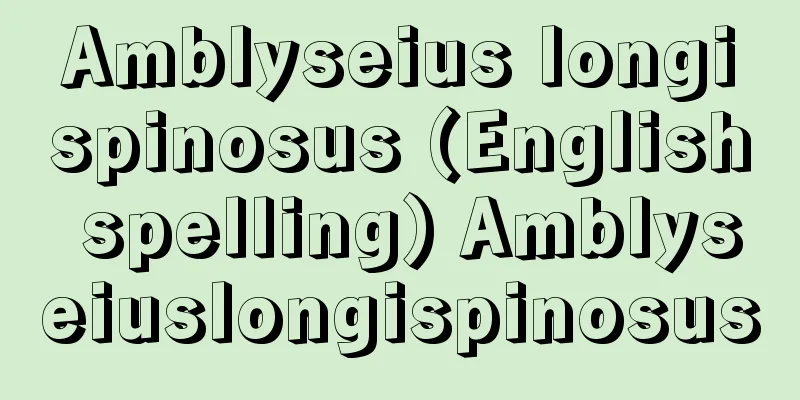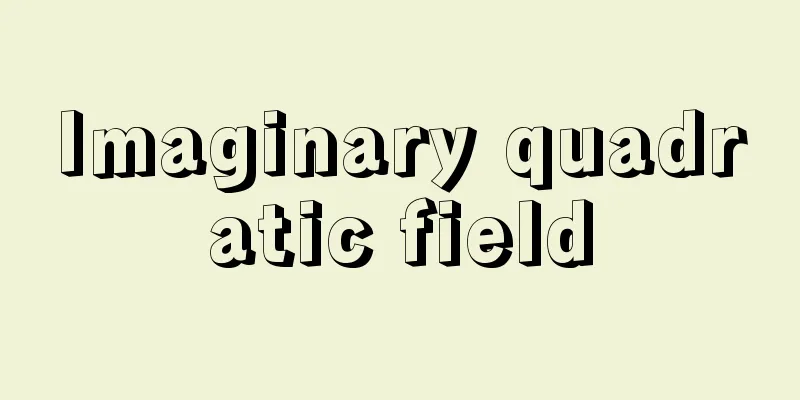Chin -

|
〘noun〙① The lower jaw. Jaw. ⇔Agi (jaw). ※Ryōiki (810-824), part 2: "There is a large chin on the right side of the head of that Zen master (Otokahi) ( Shinpuku -ji Honkunshaku Otokahi)" ② (derived from a deep functional relationship) means "mouth". ※Kabuki: Ojiko Takiuchi (1753), part 6: "Mu, hahahaha, leave it to me to explain. You will not receive any of the land." ③ (adjectival verb) To talk a lot. To speak profusely, to speak ill of others, etc. Also, the state of being such. Chattering. *Joruri, Shinju Ten no Amijima (1720), Part 1: "I'll get revenge, remember that," he says, running away with a smug smile. People who stop by burst into laughter, and even if they step on me, I can still hear that sound." [Etymology] The original usage was to describe the lower jaw when a human face is viewed from the outside. It was used more frequently than "agi" or "agito" throughout the Middle Ages and was the representative word for the jaw. This situation was maintained in Kamigamo in the early modern period, but the use of "otogai" decreased in Edo in the late modern period. During this period, when "ago" also came to be used to mean the lower jaw, the semantic distinction between "ago" and "otogai" was lost, and "otogai" ceded its position as the representative word for the jaw to "ago." →Agi/Agit Source: The Selected Edition of the Japanese Language Dictionary About the Selected Edition of the Japanese Language Dictionary Information |
|
〘名〙① 下あご。あご。⇔腭(あぎ)。※霊異記(810‐824)下「彼の禅師の(オトカヒ)の右の方に大きなる黶(ふすべ)有り〈真福寺本訓釈 ヲトカヒ〉」② (機能上関係が深いところから転じて) 「くち(口)」をいう。※歌舞伎・幼稚子敵討(1753)六「ムウ、ハハハハ、おとがひ明いた任(まか)せに。こなたに知行は貰わぬ」③ (形動) さかんにしゃべること。広言、悪口などをはくこと。また、そのさま。おしゃべり。※浄瑠璃・心中天の網島(1720)上「返報する、覚へておれと、へらず口にて逃出す。立寄る人々どっと笑ひ、踏まれてもあのおとがひ」[語誌]主に人間の顔を外側からながめたときの下顎を表わすのが本来の用法である。アギ、アギトに比べ中古・中世を通じて使用頻度が高く、顎(あご)を意味する代表的な語であった。この状況は近世前期の上方では保たれたが、近世後期の江戸ではオトガイの使用は減少する。この時期、アゴが下顎の意味でも使われるようになると、アゴとオトガイとの意味上の区別が失われ、オトガイは顎の代表語の地位をアゴに譲った。→あぎ・あぎと
出典 精選版 日本国語大辞典精選版 日本国語大辞典について 情報 |
Recommend
Pathotoxin
…Among the metabolic products secreted by plant p...
Total Peace Movement
A movement that took the position that when the pe...
Ariake Collection - Ariakeshu
This is the fourth collection of poems by Kambara...
Acaroid mite
A general term for a group of mites belonging to ...
Sarcomine
Common name for N , N' -ethylenebis(salicylide...
Gottan Funei
A Rinzai sect monk who came to Japan during the K...
Muḥammad b. Sa'ūd (English spelling) Muhammad b Saud
…Wahhabi teachings inspired Bedouin warriors, and...
Brahmagupta
[Raw] 598 [Died] c. 665. Ancient Indian astronomer...
City [village] - Shiura
A village in Kitatsugaru District, northwest of Ao...
Epiplemidae
…General term for insects of the family Epiplemid...
TRAM
...This work was in response to the avant-garde m...
Sa'd Zaghloul (English spelling)
1857‐1927 The greatest leader in the history of mo...
Post-industrial society
A society in which industries related to informati...
Availability theory
The amount of funds that an individual borrower ca...
convivialité (English spelling) convivialite
...The basic function of a Japanese family and a ...









